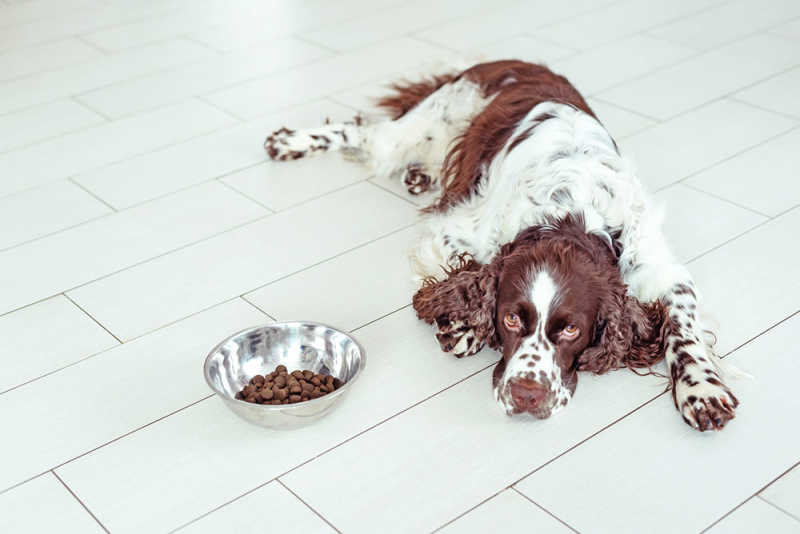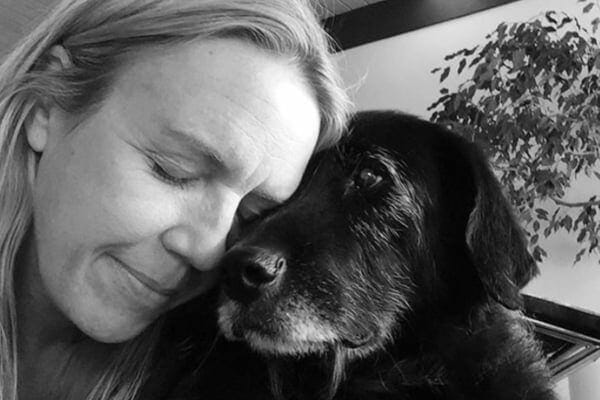If your dog won’t eat or drink and just lays there, it might be a sign of illness or discomfort. This behavior could indicate a variety of potential health issues, including gastrointestinal problems, dental issues, or infections.
It’s crucial to monitor your dog closely for any other symptoms and consult with a veterinarian as soon as possible to determine the underlying cause and provide appropriate treatment. Furthermore, sudden changes in appetite and activity levels can be a cause for concern, warranting immediate attention from a professional.
In the meantime, try to encourage your dog to drink water and offer easily digestible, tasty food options. Keep an eye on any changes in behavior and seek prompt veterinary care to ensure your dog’s well-being.
Identifying Canine Health Red Flags
One of the most concerning things for a dog owner is when their dog won’t eat or drink and just lays there. These signs are general signs of a dog’s poor health and should not be overlooked. Recognizing lethargy and loss of appetite in dogs can provide important clues about their well-being. It is crucial to monitor your dog’s daily habits for any changes as it helps in maintaining their overall health.
My Dog Won’t Eat Or Drink And Just Lays There: Urgent Care Tips
Is your dog refusing to eat or drink and seems unusually lethargic? Urgent care may be necessary. Assess your dog’s condition by checking for symptoms such as vomiting, diarrhea, or bloating. If the lethargy is accompanied by any of these symptoms, urgent care is crucial. To encourage food and water intake, try offering appetizing foods, such as broth or wet food, and using a hand-feeding approach. Keep fresh water available and consider adding electrolyte solutions to help with hydration. Avoid forcing your dog to eat, but try offering small, frequent meals and monitor their intake closely. If these measures don’t improve your dog’s condition, seek immediate veterinary care.
Addressing Potential Causes
If your dog won’t eat or drink and just lays there, it could be due to a number of potential causes related to their health, environment, or emotions. Some common health issues leading to inappetence and lethargy in dogs include dental problems, gastrointestinal issues, or infections. It’s important to investigate any recent environmental or dietary changes that may have occurred, as these can also impact your dog’s appetite and energy levels. Additionally, emotional factors such as anxiety and depression can have a significant impact on a dog’s willingness to eat and stay active. Understanding these potential causes can help you take the necessary steps to address your dog’s reluctance to eat or drink and help them get back to their normal, healthy selves.
Home Remedies And Comfort Measures
Offering a comfortable and stress-free environment: When your dog won’t eat or drink and just lays there, it’s crucial to create a soothing atmosphere. Keep the environment calm and quiet to reduce stress and anxiety for your pet. Provide a soft and cozy bed for resting and ensure the area is warm and draft-free.
Safe at-home care practices for ailing dogs: It’s important to monitor your dog closely and offer gentle care. Make sure they have access to fresh water and provide small, easily digestible meals. Keep your dog’s living area clean and maintain a consistent routine to provide a sense of security.
When to administer food and hydration assistance: If your dog continues to refuse food or water, consult your veterinarian. They may recommend specialized food or hydration assistance measures. It’s essential to seek professional guidance for a tailored care plan to address your dog’s specific needs.
Seeking Professional Help
When your dog refuses to eat or drink and is lethargic, it may be indicative of an underlying health concern. Signs such as persistent vomiting, diarrhea, or refusal to stand should prompt an immediate vet visit. During a veterinary emergency consultation, the vet will conduct a thorough examination to assess your dog’s condition and decide on the appropriate treatment plan. Potential diagnostics may include blood tests, x-rays, or ultrasound to identify any underlying issues. Based on the diagnosis, treatments such as intravenous fluids, medications, or hospitalization may be recommended to facilitate recovery.

Credit: www.smalldoorvet.com
Frequently Asked Questions On My Dog Won’t Eat Or Drink And Just Lays There
Why Is My Dog Not Eating Or Drinking?
If your dog refuses to eat or drink, it could signal an underlying health issue, dental problems, anxiety, or even a change in their environment. It’s crucial to monitor their behavior and consult a veterinarian for further assistance.
What Are The Potential Health Concerns For My Dog’s Lack Of Appetite?
The lack of appetite in dogs could be caused by various health issues such as infections, digestive problems, kidney disease, or liver issues. It’s essential to seek professional veterinary help to identify the root cause and ensure proper treatment.
How Can I Encourage My Dog To Eat And Drink?
To encourage your dog to eat and drink, consider offering them a variety of high-quality and flavorful foods, ensuring a comfortable and calm feeding environment, and providing ample opportunities for exercise and mental stimulation. If the issue persists, consult a veterinarian for guidance.
Conclusion
It’s crucial to monitor your dog’s health closely and act if you notice any changes in their behavior. Consult a veterinarian promptly if your dog refuses to eat or drink and seems lethargic. Understanding the potential underlying causes can help provide appropriate care and bring back your dog’s vitality.
Remember, your dog’s well-being is a top priority.



